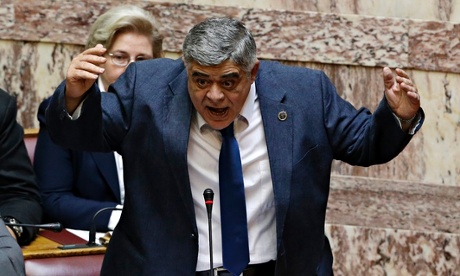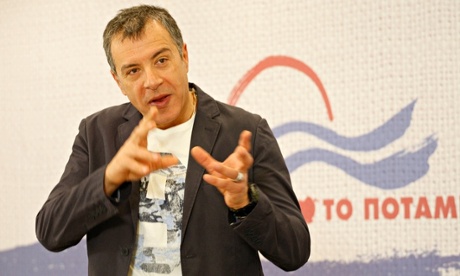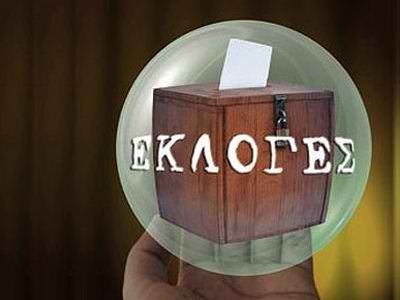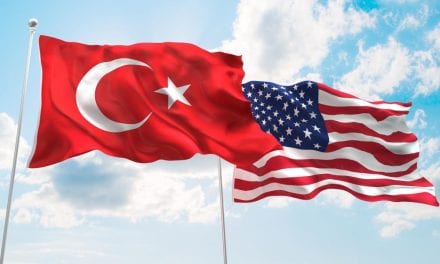Profiles of the contenders and their leaders – Syriza, New Democracy, Golden Dawn and To Potami – in a momentous election, not only for Greece, but also for the eurozone
By Helena Smith, The Guardian
Syriza
The party whose name is a Greek acronym for Coalition of the Radical Left was relegated to the sidelines of politics before the explosion of the country’s debt crisis. An alliance of 11 factions – ranging form diehard Marxists, Maoists, Trotskyists, Socialists, Euro-communists and Greens – its popularity soared on the back of strident opposition to unpopular austerity measures demanded by the EU and IMF in exchange for emergency rescue funds to reinforce the insolvent Greek economy. Alexis Tsipras, its charismatic leader, wooed voters by pledging to “tear up” the bailout accords signed with creditors, reinstate laid off workers, raise the minimum wage, renationlise state assets and reduce the country’s debt – promises that, if acted on, would put Athens on a collision course with lenders and endanger its membership of the eurozone. After winning the European elections last May, he went further, warning he would light the fire of an “anti-austerity” blaze across the continent. In return Tsipras was described as an “unhelpful trouble maker” by the German chancellor, Angela Merkel. In 2013 Syriza’s dissonant groups united as a single force but ideological differences still exist. As the party has edged ever closer to power, it has softened its rhetoric, with Tsipras telling German taxpayers they have nothing to fear if Syriza comes to power. Militant leftists have not been impressed. Tsipras’s biggest challenge will be controlling far-left ideologues in his party.
New Democracy

Greek PM Antonis Samaras, leader of New Democracy. Photograph: Simela Pantzartzi/EPA
Led by the urbane Antonis Samaras, the centre-right party has been the dominant force of a coalition government since June 2012. Samaras, who was a fervent critic of the neo-liberal policies foisted on Greece when in opposition, did a 180-degree U-turn when he assumed power. Despite widespread resentment, his government forged ahead with structural reforms and budget cuts that saw the country’s national productivity drop by 25% – unprecedented in modern times for an advanced western economy. New Democracy and its junior partner, Pasok, both lost MPs as deputies, breaking ranks, refused to endorse the policies in parliament. But the coalition was credited with overseeing the first green shoots of economic recovery. Tortuous negotiations over more measures prevented Athens from concluding what was meant to be a last evaluation of the economy before it exited its bailout program. But Samaras, aged 63, has waged his electoral campaign by highlighting the dangers “a communist Syriza government” would pose to Greece in the eurozone. Under the slogan “we are telling the truth”, the conservatives say the country has no choice but to satisfy the EU, IMF and ECB if it is to secure a precautionary credit line to replace bailout funds that expire at the end of February.
Golden Dawn

The leader of the far-right political party Golden Dawn Nikos Michaloliakos in parliament in Athens Photograph: Thanassis Stavrakis/AP
Like Syriza at the other end of the political spectrum, the far-right extremist party experienced a meteoric rise in popularity as Greece sank ever deeper into recession. Unabashedly populist, xenophobic and anti-systemic, the neo-fascist party has retained a core base of support of between 5% and 7% in recent polls despite nine of its 16 MPs, including leader Nikos Michaloliakos, a self-proclaimed admirer of Hitler, being held in prison pending trial on charges of extortion, weapons possession and operating anti-immigrant hit squads. The extremists, at pains to reinvent themselves as Greek Nationalists, have made becoming the country’s third biggest force – after Syriza and New Democracy – their overarching goal. From their “cells of honour”, Golden Dawn’s leaders have accused pollsters of deliberately suppressing the party’s ratings while promising Greeks that the “dictatorship of the corrupt” will similarly end up behind bars after the election. If the party repeats its performance in last May’s euro election, it could emerge as Sunday’s surprise victor.
To Potami (The River)

Stavros Theodorakis, journalist and founder of Greece’s new party, To Potami. Photograph: Aristidis Vafeiadakis/ZUMA Press/Corbis
Established by Stavros Theodorakis, a television journalist last year, the centre-left party has been embraced by the western-educated elite, with polls indicating that it is likely to garner around 6 percent of the vote. Reformist leftist dissidents, who have also joined the party, have given what would otherwise be seen as a trendy outfit – Theodorakis’s trademark is a rucksack – an air of gravitas. With their emphasis on root-and-branch reform, the moderates have declared that their avowed aim is not power but modernising the dysfunctional Greek state. Theodorakis has not ruled out collaborating with Syriza – describing some of its policies as being in line with Potami’s own proposals – if the radical leftists fail to win a working majority. But he has made Greece’s continued membership of the single currency “a red line” that cannot be crossed. He has also proposed cross-party consensus in dealing with Athens’ foreign lenders – measures that would restrain the power of ultra-leftists in government. “But that means we must emerge as the third party,” says the newcomer. If opinion polls over the last week are correct, Theodorakis may well get what he wishes – but it is going to be a close-run thing.



















